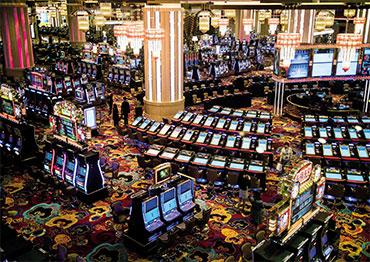Lin Jiang, vice director of the Center for Studies of Hong Kong, Macao and Pearl River Delta at Sun Yat-sen University in Guangzhou, Guangdong Province, told NewsChina the SAR government has demonstrated its determination to strengthen supervision with the consultation text, but it is a hard decision considering the industry’s economic significance.
Gaming dominates the local economy. In 2019, tax revenues from the gaming industry accounted for 85 percent of the city government’s income and 55.5 percent of Macao’s GDP. In 2020, the gaming industry made up 17.23 percent of overall employment.
Chen Zhangxi noted that after opening up the gambling market, Macao relied on gaming like never before. Its previous pillar industries, such as clothing and toy manufacturing, rapidly dwindled. The city’s secondary industry (including manufacturing and construction) decreased to less than 10 percent, and has been below 8 percent since 2009.
The coronavirus pandemic fully exposed the vulnerability of Macao’s over-reliance on gaming. Macao’s casinos usually run 24 hours a day, only closing for typhoons. But in February 2020, casinos closed for 15 days, their longest closure ever, and have since struggled to restore their former business. Macao’s Chief Executive Ho Lat-seng said in his first policy address in April 2020 that Macao would be in the red for the first time since its return to China. GICB statistics show that in 2020, gross revenue of the gaming industry dropped by 79.3 percent from the previous year, while the region’s economy contracted by 56.3 percent.
Ho points out that maintaining the steady development of gaming remains crucial to ensuring economic stability in Macao. But long-term over-reliance on gaming and the singularity in Macao’s economic structure will make it hard for the region to realize sustainable development, Ho said.
This problem has been pointed out repeatedly over the past two decades. In 2016, Macao government said in its midterm review report of the casino industry that Macao’s economy and employment relied too much on gaming. But despite continuous calls for diversified development, the effect has been limited.
Ho Lat-seng mentioned in his first policy address that the proportion of new emerging industries is low in Macao’s economy. In 2019, the exhibition and creative culture industries, which the local government actively promoted, made up less than 1 percent of overall GDP.
“Lack of talent and limited land resources have led to the slow development of nongaming industries in Macao,” Ye Guiping said.
A State plan to deepen cooperation between Guangdong Province and Macao is a way out. In the policy address for the fiscal year 2020, Ho Lat-seng described a project with Hengqin District in nearby Zhuhai as the first step for Macao to integrate into the Guangdong-Hong Kong-Macao Greater Bay Area and a new space for Macao to diversify its economy.
This point is confirmed in the central government’s general plan released in September for building the cooperation zone, which designates Hengqin as a new platform for Macao to diversify its economy and a new working and living space for Macao residents.
According to the plan, Guangdong and Macao will jointly oversee operations of the Hengqin District zone and build a management committee to oversee international promotion, attracting investment, introducing industries and land development.
Lin Jiang said that Hengqin District is exploring an innovative model of regional governance. While much about the model remains unknown, one thing for sure is gaming will not enter Hengqin, Lin said. Guangdong and Macao will seek to develop non-gaming industries in Hengqin, including scientific research, high-end manufacturing, exhibition and cultural industries, finance and traditional Chinese medicine.
Experts anticipate Macao’s gaming industry will be restricted to an appropriate scale. The golden days of gaming’s absolute dominance are gone, Lin said. As for the size, Chen Zhangxi said that about 30 percent of Macao’s GDP will be more appropriate for the gaming industry.
In the future, Macao needs to carefully balance gaming and non-gaming industries. Shi Jialun warned that because Macao has a weak industrial foundation, it needs some time for a diverse economy to grow. “Therefore, while restricting the growth of gaming and encouraging gaming companies to develop non-gaming businesses in the coming rebid, it’s also important to guarantee the stability and predictability of investment policies to ensure local employment and tax, which will set the foundation for developing multiple industries,” Shi said.

 Old Version
Old Version

